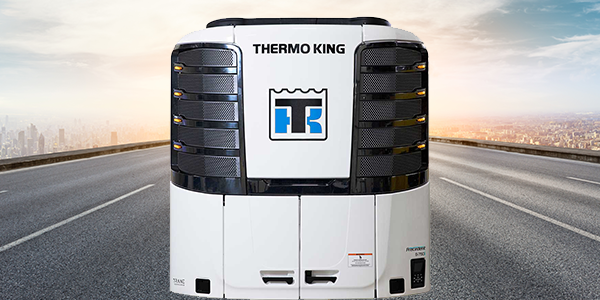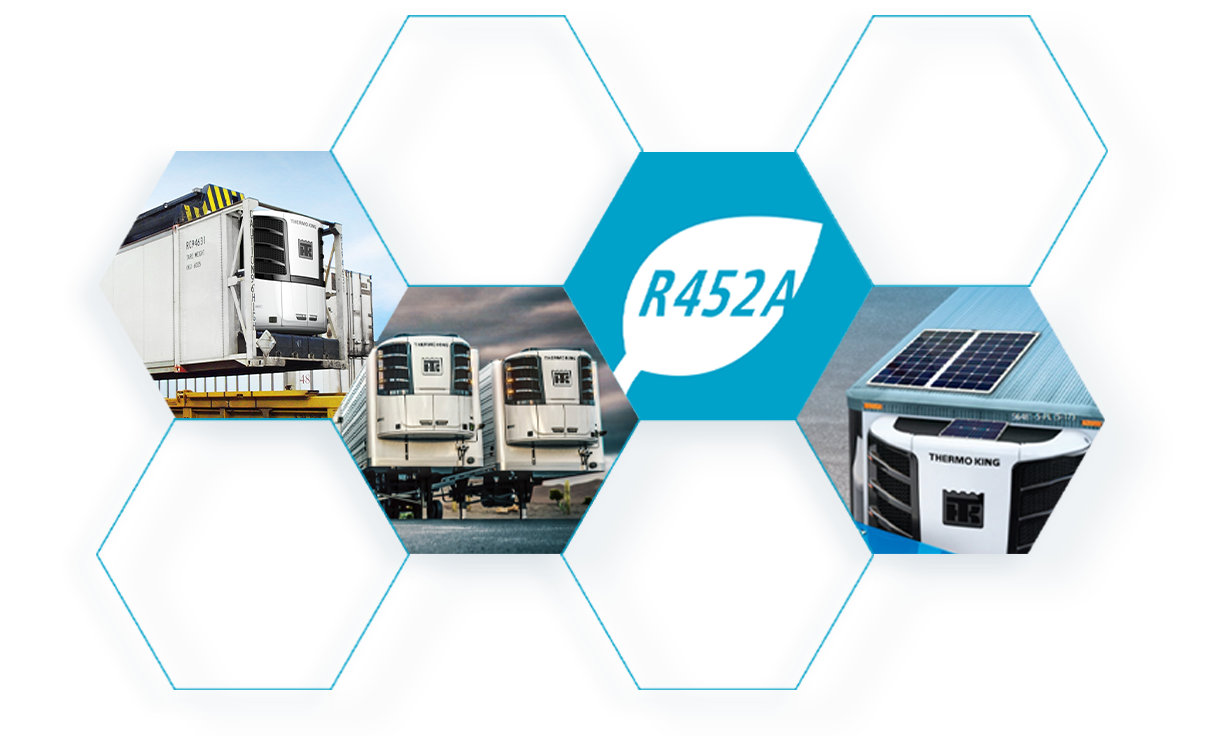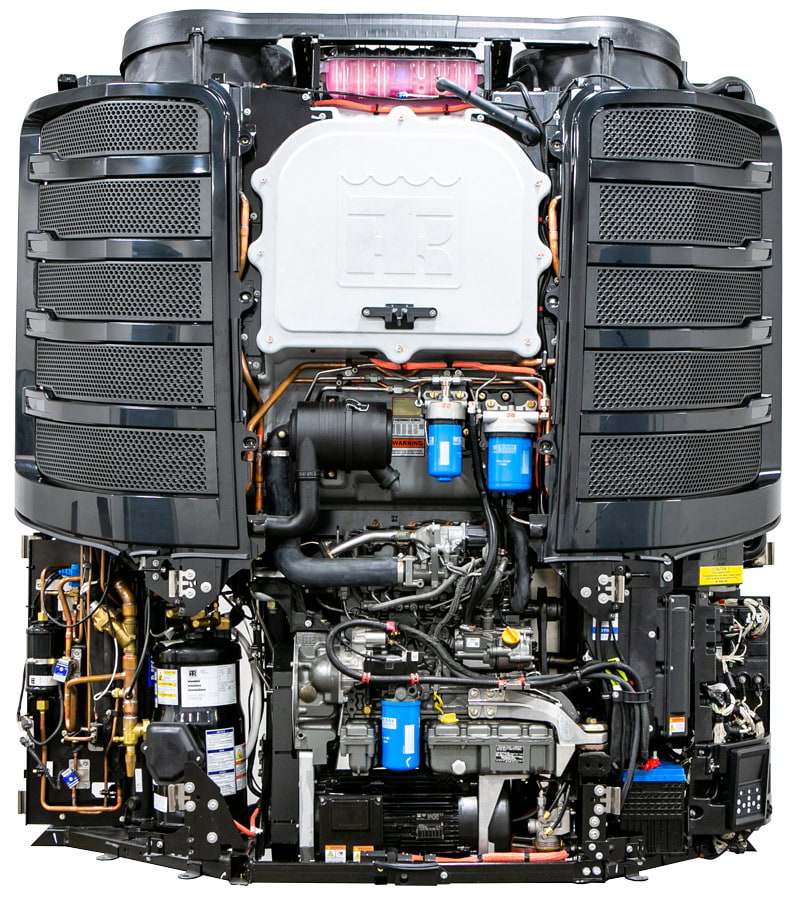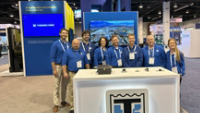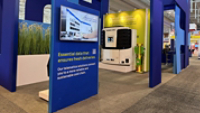Precedent Anniversary Engineer FAQ
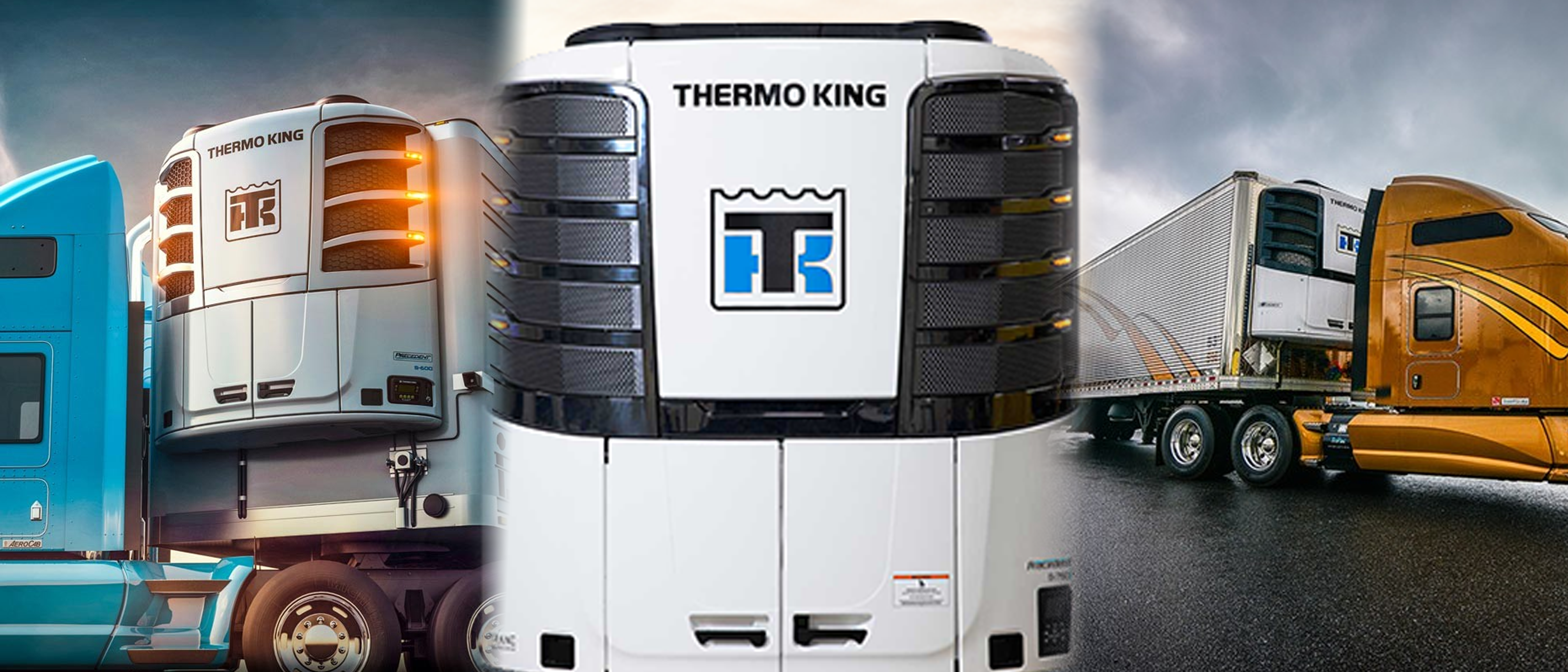
Coming up on a decade of our Precedent® S-Series, we're reflecting on the last 10 years of sustainability, innovation and hard work that went into creating the first-of-its-kind TRU. We spent some time with Ross Nelson, Truck, Trailer & Rail Engineering Leader, to talk about how he helped turn the S-Series from a concept to a reality.
Q: Prior to 2013, an ultra-low emissions transport refrigeration unit (ULETRU) was not seen in the Trailer market. Why did Thermo King choose to introduce a ULETRU Trailer product at that time?
A: In short, the timing was right. We knew that if we could create a unit that would meet ULETRU emission standards and improve the overall total cost of ownership (TCO), we would have the best possible solution for our customers. Our goal was to be intentional and forward thinking to develop a platform of new Trailer TRUs that reinforced Thermo King’s position as the transport refrigeration industry leader.
And that’s what we did. We started the development work with the goal of designing a Trailer TRU that would meet the most stringent diesel engine emissions standards when EPA Final Tier 4 standards began applying to TRU products in 2013. And we made sure it would offer the best customer TCO available.
We partnered with a diesel engine supplier to develop an engine that meets >19kW power category ULETRU emission level without the need for a diesel particulate filter (DPF) to reduce customer maintenance costs. This was achieved by using a common rail fuel injection system, Exhaust Gas Recirculation (EGR), Diesel Oxidation Catalyst (DOC) after-treatment, and associated engine controls.
Design of the Precedent system was centered around optimized efficiency to lower customer operating costs. We knew the engine design required to meet EPA Final Tier 4 >19kW emissions standards would add cost to the TRU. By reducing maintenance and operating costs, plus improving resale value on the unit, the Precedent design provided overall TCO value to customers.
Q: What key findings were discovered during the design and test phase that helped shape the Precedent product launch?
A: Throughout the project, many prototype units were built and tested in a variety of ways to ensure the final product would meet our quality, performance, sustainability, and TCO requirements. There were a couple of key findings that come to mind.
First was the need to modify the new Precedent condenser airflow system to be robust to all tractor fairing configurations. On one of our field test units, we found an interaction with the air coming off the top of the tractor fairing, reducing condenser fan airflow in some cases. This was learned on a field test unit through telematics data analysis, and we ultimately made a simple design improvement to improve robustness of condenser airflow.
The second key finding was how to tune our control and temperature measurement systems for optimized TRU efficiency, taking advantage of the efficient Precedent architecture. This involved important final design changes to the position of evaporator air temperature sensors and adjustments to temperature control algorithms specific to the Precedent system. We had a team that spent many hours studying data from on-trailer tests in our lab to experiment with and finalize these changes. Finally, numerous side-by-side fuel consumption tests were performed on trailers, including with competitor units, to confirm Precedent’s leading efficiency benefits.
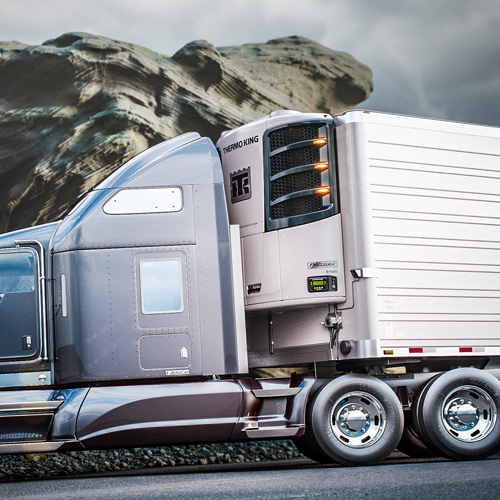
Q: How did our engineering team build on the successes of Thermo King’s legacy SB Trailer product line while designing a revolutionary new product?
A: One key component on the Precedent system that is the same as our SB product line is the X430 reciprocating compressor. The compressor is the heart of the refrigeration system, and it was a major reason for the SB Trailer product success over the years. The direct drive configuration of the X430 provided the most efficient way to transfer energy from the diesel engine to the compressor. For reasons of reliability/durability and efficiency, the Precedent design took advantage of the direct drive X430 just like the SB Trailer product line had done.
Precedent diesel engines are built off the same design building blocks as SB Trailer engines, proven to be reliable and durable in transport refrigeration applications. Next to the compressor, the diesel engine is another key component that drives customer value in terms of efficiency, reliability, and durability.
In addition, the temperature control design and methodology were leveraged from the SB Trailer line. This ensured best in class temperature control accuracy, vital to food and pharmaceutical product safety and shelf life.
Q: With ever-changing regulations over the last decade and a desire to provide reliable solutions to our customers, what improvements has the Precedent line seen since its creation?
A: The Precedent line officially launched in 2013 with the S-600 single temperature model, the first ULETRU unit meeting CARB low diesel engine emissions standards. The S-600 model was followed closely behind by the C-600 single temperature model to provide customer choice with respect to the engine configuration. Between 2014 and 2017, we developed and launched three multi-temp variants, the S-610M, S-610DE, and C-600M. To round out the Precedent family, a high-capacity single temperature model S-700 was developed for customers requiring best in class deep frozen cooling capacity. In recent years, telematics systems have been implemented as standard on all units to provide TracKing capabilities for asset connectivity and fleet operational benefits. All new condenser grilles have been implemented across every Precedent model to give the unit a new look while at the same time a new fuel filtration system was implemented on S-series models for enhanced engine protection. In 2022 we transitioned all Precedent models to a lower GWP refrigerant called R-452A. Finally, we’re very excited for the new Precedent S-750i model which launched at the end of 2022.
Q: As sustainability continues to be at the forefront of Thermo King’s initiatives, how is Thermo King preparing for a more sustainable future? How has Precedent shaped Thermo King’s innovation pipeline going forward?
A: Recently we have designed and launched a new model called the Precedent S-750i, which shares many components with existing Precedent models. The major change in TRU architecture is the electrification of the compressor by using an internally developed hermetic scroll compressor.
In addition, the S-750i unit has a larger A/C generator that was developed to power the entire TRU. The larger A/C generator has design fundamentals taken from the existing Precedent smaller A/C generator that has been successful in the marketplace for 10 years now. The S-750i architecture is optimized for electric standby usage, which more and more customers are taking advantage of for sustainability reasons, something they can do with their existing fleet of TRUs.
The Precedent platform has also shaped the innovation pipeline for other Thermo King products. The Precedent S-600 engine was used to create a ULETRU configuration of the SG-5000 model genset within our Marine business. This provides many of the same customer value drivers as in the Precedent models. The Marine genset design team was able to re-use the S-600 engine almost 100% which allowed quicker speed to market and leverages common service parts.
Q: From your perspective as an engineer bringing Precedent to life, why was the Precedent trailer product launch a significant moment in Thermo King’s history?
A: As an engineer, this was a once in a lifetime opportunity, not only to work on a project like this, but to lead a key sub-team of the new design. Significant preparation was done to research diesel engine designs and suppliers to meet Final Tier 4 >19kW emissions levels. Thermo King’s Precedent S-600 was one of the first industrial products to meet Final Tier 4 >19kW without a DPF. In subsequent years since the Precedent launch, we have seen numerous industrial engine manufacturers develop DOC-only configurations.
It was energizing to re-think the entire design of the product and I am proud to see the success of the product now 10 years later. It started with a strong focus on system architecture study and a recommendation for the most efficient configuration based on how customers use the product.


